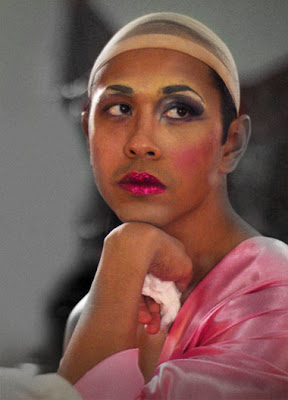It is a truth universally acknowledged in ultraorthodox Jewish communities that a man or woman of marriageable age must either be married or in want of a spouse. In the Israeli film Fill the Void (Hebrew with subtitles), a costume drama playing in one such community in Israel, writer and director Rama Burshtein tells the story of how the young care-free Shira (Hadas Yaron) is unexpectedly thrown into emotional turmoil when, in the midst of the search for a suitable husband, her elder married sister, to whom she is close, dies giving birth to a boy.
A few months after these events, Shira’s mother Rivka (Irit Sheleg) is faced with the possibility that her widower son-in-law Yochai (Yiftach Klein) might be offered a match with a widow in Antwerp. This would separate her from her beloved late daughter’s baby-boy.
When she sees how Shira and Yochai look after the baby, she suggests to Yochai to consider a match with Shira. Irit’s plan is controversial not only with her husband but also in the community. For the the match go ahead requires not only the prospective husband and wife to agree with it but also the consent of the Rebbe, the religious and spiritual leader of the community. Moreover, Irit’s headstrong disabled sister Hanna has a different plan of her own.
With beautiful costumes and set and scenes filmed at a slow pace, Rama Burshtein has succeeded in making an atmospheric film, particularly through the skilful use of photography and music. She gives a sensitive and sympathetic insight into the life of the community depicted in this film. Fill The Void does not deal with religious conflicts; it tells a universal tale, that of the powerful matriarch challenging those around her to respond and succeed in preserving their own identity and pursuit of happiness.
Burshtein is helped by a strong ensemble of actors, with Irit Sheleg, and especially newcomer Hadas Yaron standing out. Hila Feldman also shines in the small but difficult role of Frieda.
Fill the Void is a demanding film, making the viewer work, as a number of key scenes are open to interpretation, particularly regarding the motives and emotions that lie behind the decisions and actions of the different characters.
One sign of a quality film is that it leaves us with considerable food for thought and intelligent discussion; Fill the Void certainly does that.
http://www.imdb.com/title/tt2219514/?ref_=ttfc_fc_tt
A few months after these events, Shira’s mother Rivka (Irit Sheleg) is faced with the possibility that her widower son-in-law Yochai (Yiftach Klein) might be offered a match with a widow in Antwerp. This would separate her from her beloved late daughter’s baby-boy.
When she sees how Shira and Yochai look after the baby, she suggests to Yochai to consider a match with Shira. Irit’s plan is controversial not only with her husband but also in the community. For the the match go ahead requires not only the prospective husband and wife to agree with it but also the consent of the Rebbe, the religious and spiritual leader of the community. Moreover, Irit’s headstrong disabled sister Hanna has a different plan of her own.
With beautiful costumes and set and scenes filmed at a slow pace, Rama Burshtein has succeeded in making an atmospheric film, particularly through the skilful use of photography and music. She gives a sensitive and sympathetic insight into the life of the community depicted in this film. Fill The Void does not deal with religious conflicts; it tells a universal tale, that of the powerful matriarch challenging those around her to respond and succeed in preserving their own identity and pursuit of happiness.
Burshtein is helped by a strong ensemble of actors, with Irit Sheleg, and especially newcomer Hadas Yaron standing out. Hila Feldman also shines in the small but difficult role of Frieda.
Fill the Void is a demanding film, making the viewer work, as a number of key scenes are open to interpretation, particularly regarding the motives and emotions that lie behind the decisions and actions of the different characters.
One sign of a quality film is that it leaves us with considerable food for thought and intelligent discussion; Fill the Void certainly does that.
http://www.imdb.com/title/tt2219514/?ref_=ttfc_fc_tt
.jpg)














.jpg)









